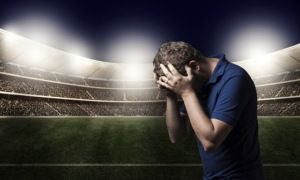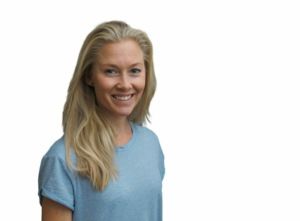Opinion
A Dane Abroad: Perspective people, please!
Kirsten Louise Pedersen
This article is more than 5 years old.

You might be lonely but it’s better than evil company (photo: Pixabay)
Albert Einstein once remarked: “Adversity introduces a man to himself.”
Hourly hardships
Last week yet another interview with a person lamenting the negative effects of lockdown during the coronavirus outbreak aired on Danish media. The fear of loneliness, feeling the restriction of personal freedoms, the fear of unemployment, depression, disappointments at cancelled holidays, and cancelled school trips have all been recurrent themes. One woman even felt that her maternity leave may as well be refunded as she wasn’t able to enjoy many of the activities that go along with being on maternity leave in Denmark.
After following the discussions relating to the Coronavirus Crisis, both home and abroad, I feel that it is time to have a talk about perspective in this country. At the risk of sounding harsh, I find that the victimhood narrative, which has dominated the Danish media for the past few months, simply highlights just how privileged we are here in Denmark. The reactions of many Danes suggest that we may be somewhat poorly equipped when it comes to personal coping skills.
On a daily basis we hear stories of people struggling to cope – and also of mental health problems being on the rise since the onset of the crisis. I find it thought-provoking that so many people seem to have so much trouble coping in the face of these challenges in a country that, after all, enjoys such good conditions compared to other countries.
Perspective please
Aside from rebellious Sweden, Denmark has had some of the least extreme lockdown regulations. Deaths and a rise in unemployment were always going to be natural consequences of a pandemic of this calibre. Not even safe little Denmark is immune to a pandemic. Despite this, Denmark has experienced a relatively low level of impact on the individual.
Some may find this a harsh comparison, but here goes anyway. We are not at war. No-one is dying in droves. And despite some interpretations, our freedom is not actually being particularly compromised. Being deported to Auschwitz against your will would be robbing you of your freedom. Being asked to practise common sense while carrying out most of your daily activities, with a very small chance of getting sick or dying, is on the other hand not a terrible restriction of freedom.
I do feel myself cringe slightly when I ponder how my late grandmother would react to seeing how people have responded to this crisis. She lived through the Second World War, and apart from having German soldiers rock up at the front door of her family’s farmhouse and subsequently occupying half of it for the remainder of the war, food was scarce, travel was impossible, and you actually risked getting shot if you were out after hours.
In today’s Denmark we enjoy extremely safe conditions on so many parameters. We have almost a zero percent chance of being hit by a natural disaster, we have no wildlife that can kill you (a stag deer is as wild as it gets), corruption is low-scale, crime is low, infrastructure is strong, the economy is strong (unless SKAT continues to give it all away), and hospital and GP visits are free. Should you lose your job, government schemes ensure that at least you get some money, as opposed to none at all.
These factors make us a very safe country. On a daily basis we are shielded from otherwise natural risks that millions of other people on the planet are faced with every day. Has this inflated sense of safety made us complacent about the risks that actually lurk out there in the rest of the real world? Has it made us lose perspective on how lucky we are in spite of the recent situation?
The subject of death
The fact that we plan so much for our pensions in Denmark is a good indicator that most of us actually live until the age of retirement – and often way beyond. Living until an old age has long been an expectation in Denmark. We have come to view a long life almost as a right – and not the privilege that it really is.
We talk about death as if it is always a disaster. It is not. You can easily live a long and miserable life. And you can live a shorter and meaningful life. Sometimes death is even a liberator. But in all cases, we must be able to admit to ourselves that even if conditions aren’t ideal, death can never be unnatural. Our expectations about life, on the other hand, can be. My own father died in an accident when he was only 48. For whatever reason, his time was up. His death was not unnatural. Accidents unfortunately do happen in life. It only appeared unnatural to us because, after all, it is relatively rare that people die young in this country.
The people who have lost their lives as a result of the coronavirus have so far mostly been elderly and/or sick people with several pre-existing comorbidities. In these instances life was not a risk-free affair before the coronavirus, and I feel that we have forgotten this, as we insist on saving every life possible – seemingly at whatever cost.
The comfort trap
I think we enjoy a kind of comfort, convenience and safety in this country that is almost second to none – and very rare on a global level. And some might say that this welfare cocktail creates a risk of detachment from the challenges of real life. Because real life has never been completely safe, nor very convenient or particularly comfortable at all times.
Existing daily in this constructed bubble of safety and comfort, I think, has somewhat desensitised us to real life outside of the duckpond. We forget – we may not even know – how raw life sometimes is. Living in a place like Denmark we are shielded from most of life’s rawness, and I feel the need to point out that many of the things we complain about here are absolute luxuries somewhere else.
Blind worshipping of comfort without understanding the catch, which is reduced coping skills, can be detrimental as we fail to learn how to cope in the face of adversity. And that is, in my view, a slippery slope that leads to passivity and excessive dependence. I really hope that this crisis is showing us that we seriously need to start changing that. People need to learn to cope with challenges within themselves before running off to the nearest shrink. Nothing wrong with shrinks, but they shouldn’t be the first port of call.
In Denmark safety and security are being delivered to us on a silver platter in the form of geographical luck and decades of democratic legislation and infrastructure work. A safe society with few challenges may seem like a great idea on the face of it, but we appear to be blind to the helplessness that goes hand-in-hand with constant comfort.
Discernment
The media carry a significant responsibility regarding how news and stories are being portrayed and broadcast to the masses. However, as a person’s attention is becoming a most prized commodity these days, it is of utmost importance that we learn the art of discernment and critical thinking. We are being bombarded with a torrent of information on a daily basis and, as nothing is going to magically appear that will somehow shield us from this phenomenon anytime soon, it is now up to the individual to learn how to navigate the ever-increasing flow of information.
Modern socialist societies do not tend to have a culture of encouraging individual coping skills and resilience. But these are basic life skills necessary for everyone – even in safe societies – and these skills need to be trained and prioritised in order to be useful when disaster strikes. Such as a coronavirus pandemic.
Times are changing and, despite living in one of the best welfare states on the planet, it makes sense for each of us to start taking greater responsibility for our own life experience. We could start by improving our sense of perspective, developing our coping skills and becoming more familiar with that thing called gratitude.

About
Kirsten Louise Pedersen
Born and raised in Denmark and a resident of New Zealand for over 14 years, Kirsten has lived a pretty nomadic life since her early 20s. A physiotherapist, yoga teacher and keen home cook, she is passionate about food, good living and natural health. Follow her on Instagram @mskirstenlouise










































